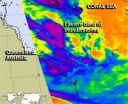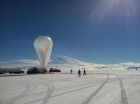Digital diagnostic tools lead to patient dissatisfaction, says MU expert
Health-care providers should incorporate decision aids with personal attention
2013-01-25
(Press-News.org) COLUMBIA, Mo. – Health care practitioners now can access patients' data using electronic medical records, which often include information systems that assess individuals' medical histories and clinical research to facilitate doctors' diagnoses. A University of Missouri researcher says the increased use of computerized clinical decision support systems (CDSSs) leads to greater patient dissatisfaction and could increase noncompliance with preventative care and treatment recommendations.
Victoria Shaffer, an assistant professor of health sciences and psychological sciences, says CDSSs offer several types of decision aids, including alerts about medication errors; suggestions for alternative prescriptions or courses of treatment; ideas for managing chronic diseases; and reminders to discuss vaccinations, screenings or other preventative care services. Physicians concerned about whether using CDSSs will negatively affect their relationships with clients could incorporate the tools to engage patients and help them understand diagnoses and recommendations, she said.
"Patients may be concerned that the decision aids reduce their face-to-face time with physicians," Shaffer said. "However, practitioners can use the aids as teaching tools to explain their diagnoses using pictures or graphs, which make the patients' experiences much more interactive and educational."
Shaffer found that patients view physicians who use decision aids as less capable than practitioners who make judgments unaided or consult their colleagues. However, patients were less likely to assign physicians responsibility for negative health outcomes when they used CDSSs; therefore, the aids may serve protective functions in litigation, she said.
Shaffer said researchers' next step is to identify whether educating patients about the benefits of decision aids alleviates their concerns and leads to greater compliance with practitioners' medical advice.
"Patients who desire to control their health outcomes are much less comfortable with health care practitioners' use of technology," Shaffer said. "Anything physicians or nurses can do to humanize the process may make patients more comfortable."
Shaffer is an assistant professor in the Department of Health Sciences in the MU School of Health Professions and also in the Department of Psychological Sciences in the MU College of Arts and Science.
The study, "Why Do Patients Derogate Physicians Who Use a Computer-Based Diagnostic Support System?", was published in the journal Medical Decision Making. Shaffer's coauthors include C. Adam Probst, a graduate of Wichita State University; Edgar Merkle, an assistant professor in the MU Department of Psychological Sciences; Hal Arkes, professor of psychology at The Ohio State University; and Mitchell Medow, an internal medicine physician in Boston, Mass.
INFORMATION: END
ELSE PRESS RELEASES FROM THIS DATE:
2013-01-25
ANN ARBOR—A new way of making crystalline silicon, developed by U-M researchers, could make this crucial ingredient of computers and solar cells much cheaper and greener.
Silicon dioxide, or sand, makes up about 40 percent of the earth's crust, but the industrial method for converting sand into crystalline silicon is expensive and has a major environmental impact due to the extreme processing conditions.
"The crystalline silicon in modern electronics is currently made through a series of energy-intensive chemical reactions with temperatures in excess of 2,000 degrees ...
2013-01-25
PHILADELPHIA—Infectious diseases in Ghana tend to capture the most attention, but a quiet crisis may soon take over as the country's most threatening epidemic: cancer.
A new study published in January in the journal BMC Cancer, led by Kosj Yamoah, M.D., Ph.D., a resident in the Department of Radiation Oncology at Thomas Jefferson University and Hospital, takes aim at the issue by investigating prostate cancer diagnoses and treatment delivery in black men living in the West African region, in order to devise research strategies to help improve health outcomes.
Overall, ...
2013-01-25
CHAMPAIGN, Ill. — A retailer's optimal store layout is the result of balancing the interests of two different types of markets – consumers and suppliers, says new research co-written by a University of Illinois business professor.
According to Yunchuan "Frank" Liu, a retailer's strategic manipulation of store layout is driven by an incentive to balance the shopping process of "fit-uncertain consumers" and the pricing behavior of upstream suppliers.
"Retailers face two different kinds of markets – the consumers who buy goods, and the manufacturers that supply goods," ...
2013-01-25
Tropical Cyclone Garry is in a good environment to intensify and satellite imagery from NOAA's GOES-15 satellite helped confirm that the storm has become more organized.
NOAA's GOES-15 satellite captured an infrared image of Tropical Storm Garry when it was located about 330 nautical miles (379.8 miles/ 611.2 km) east of Pago Pago, American Samoa. The image, created by the NASA GOES Project at the NASA Goddard Space Flight Center in Greenbelt, Md., was taken Jan. 24 at 1500 UTC (10 a.m. EST). The image showed a bright white circle of clouds that indicate strong thunderstorms ...
2013-01-25
Infrared imagery from NASA's Aqua satellite revealed that a band of thunderstorms on the eastern side of Tropical Storm Oswald's remnants still contained some punch. Oswald's remnants have triggered severe weather warnings in parts of Queensland, Australia.
When NASA's Aqua satellite passed over the eastern side of the remnants of Tropical Cyclone Oswald the Atmospheric Infrared Sounder (AIRS) instrument captured an infrared image of a powerful band of thunderstorms over the Coral Sea. The band of thunderstorms east of Oswald's center showed some strong convection and ...
2013-01-25
Flying high over Antarctica, a NASA long duration balloon has broken the record for longest flight by a balloon of its size.
The record-breaking balloon, carrying the Super Trans-Iron Galactic Element Recorder (Super-TIGER) experiment, has been afloat for 46 days and is on its third orbit around the South Pole.
"This is an outstanding achievement for NASA's Astrophysics balloon team," said John Grunsfeld, associate administrator for the Science Mission Directorate at NASA Headquarters in Washington. "Keeping these huge balloons aloft for such long periods lets us do ...
2013-01-25
Irvine, Calif. (Corrected version) — Exposing pregnant mice to low doses of the chemical tributyltin (TBT) – which was used in marine antifouling paints and is used as an antifungal agent in some paints, certain plastics and a variety of consumer products – can lead to obesity for multiple generations without subsequent exposure, a UC Irvine study has found.
After exposing pregnant mice to TBT at low concentrations, similar to those found in the environment and in humans, researchers observed increased body fat, liver fat and fat-specific gene expression in liver and ...
2013-01-25
In a development that could lead to faster and more effective toxicity tests for airborne chemicals, scientists from Rice University and the Rice spinoff company Nano3D Biosciences have used magnetic levitation to grow some of the most realistic lung tissue ever produced in a laboratory.
The research is part of an international trend in biomedical engineering to create laboratory techniques for growing tissues that are virtually identical to those found in people's bodies. In the new study, researchers combined four types of cells to replicate tissue from the wall of ...
2013-01-25
Pulsars—tiny spinning stars, heavier than the sun and smaller than a city—have puzzled scientists since they were discovered in 1967.
Now, new observations by an international team, including University of Vermont astrophysicist Joanna Rankin, make these bizarre stars even more puzzling.
The scientists identified a pulsar that is able to dramatically change the way in which it shines. In just a few seconds, the star can quiet its radio waves while at the same time it makes its X-ray emissions much brighter.
The research "challenges all proposed pulsar emission theories," ...
2013-01-25
A prospective study led by researchers from the University of California, San Diego School of Medicine has found that low serum vitamin D levels in the months preceding diagnosis may predict a high risk of premenopausal breast cancer.
The study of blood levels of 1,200 healthy women found that women whose serum vitamin D level was low during the three-month period just before diagnosis had approximately three times the risk of breast cancer as women in the highest vitamin D group. The study is currently published online in advance of the print edition of the journal ...
LAST 30 PRESS RELEASES:
[Press-News.org] Digital diagnostic tools lead to patient dissatisfaction, says MU expert
Health-care providers should incorporate decision aids with personal attention





